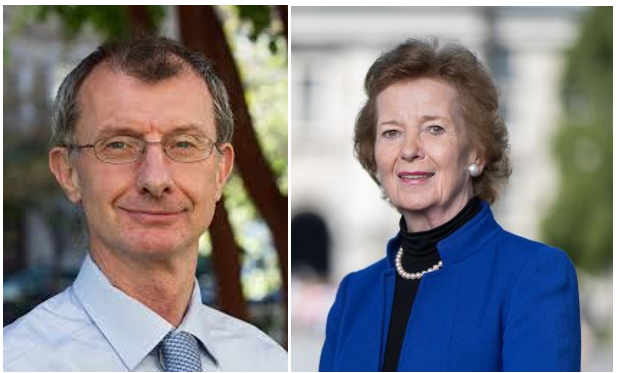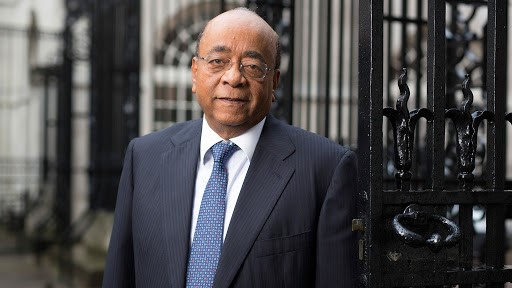With the global trading system under severe pressure, international cooperation to strengthen a rules-based order is vital. Now, perhaps more than ever, we need a World Trade Organization that supports economic recovery, defends multilateralism, rebuilds trust, and rises to the twenty-first-century challenges posed by poverty, inequality, climate change, and – more immediately – the COVID-19 pandemic.
We write as representatives of non-government organizations, philanthropists, and business leaders united in our conviction that Ngozi Okonjo-Iweala is uniquely well placed to lead the WTO into a critical new era.
It is all too easy to lose sight of why trade matters to ordinary people around the world. Aid plays a critical role in advancing human development. But it is through trade and markets, from local to global, that people work their way out of poverty and countries create jobs, build prosperity, and seize business opportunities. In our interdependent world, an open multilateral trading system overseen by the WTO can benefit all countries.
For the world’s poorest countries, trade offers a route to higher value-added production. Managed effectively, and linked to strategies for inclusive growth, international trade can help realize the ambition of the Sustainable Development Goals (SDGs) to eradicate poverty and build shared prosperity. With the world teetering on the brink of historic reversals of hard-won progress on reducing extreme poverty and malnutrition, combating child mortality, and extending educational opportunity, we need a trading system that works for the poor.
Okonjo-Iweala is well placed to work with governments to build that system. The hallmark of her career has been an unwavering commitment to poverty reduction, marginalized people, and gender equity. Under her leadership, the WTO would be a force driving progress toward the SDGs.
Beyond poverty, international trade matters for a raft of global goals for 2030. What happens through the trading system has a profound impact on the environment? The climate crisis, biodiversity loss, unsustainable use of natural resources, and pollution of the land, sea, and air point to a single overwhelming conclusion: business as usual is not an option. The scale and intensity of these challenges pose a direct threat to livelihoods, food systems, and human health.

Effective multilateral rules could help steer the world away from an ecological collision course with our planetary boundaries. The WTO could play a critical role in decarbonizing growth, protecting biodiversity, and managing pollution. Our success – or failure – in rising to this century’s great ecological challenges will define how future generations look back at us and our political leaders.
There is also an enormous prize at stake: New business opportunities linked to a more sustainable global economy could reach $12 trillion per year or more by 2030, implying more jobs and greater prosperity. Outcomes will depend in part on whether countries are able to come together through the WTO.
While trade may seem far removed from the urgent challenges posed by COVID-19, the pandemic has demonstrated our shared vulnerability and interdependence. It has also highlighted the ways in which trade can support public health.
Trade in protective equipment, testing kits, and medicines has helped save lives. Looking ahead, overcoming the pandemic will require not just vaccines, but their equitable distribution worldwide. We need to act as a single global community in protecting health. But without effective and equitable trade rules, supply chains can be disrupted, vulnerable people can be denied access to treatment, and entire countries can miss out on access to vaccines.
None of the benefits of trade are automatic. That is why the WTO needs a director-general equipped to work across political divides, build bridges, and find practical solutions. In short, it needs a leader who can work with governments, helping them rise above their differences to find common ground.
We believe that Okonjo-Iweala is uniquely well placed to play that role.
As a highly respected development economist, she has consistently highlighted the crucial role of trade in building a path to shared prosperity. Moreover, trade has figured prominently in her portfolio. During her 25 years at the World Bank, Okonjo-Iweala worked on economic policy, including the trade challenges facing developing countries in all regions. As Nigeria’s finance minister, and its first-ever coordinating minister of the economy, she oversaw the critical intersection of trade and investment with other productive sectors, and she participated in the reform of national and sub-regional trade.
Moreover, Okonjo-Iweala has a distinguished track record as an effective reformer. As Managing Director at the World Bank, she negotiated a wide range of development finance initiatives. In Nigeria, she led major financial reforms and championed transparency. Her deft handling of complex deals on debt relief demonstrated an ability to navigate a practical pathway to solutions.
Okonjo-Iweala has impressive credentials on health and the environment as well. She currently chairs Gavi, the Vaccine Alliance, a public-private partnership that has saved millions of lives. In that role, she has been one of the architects of the path breaking COVAX facility, which has now attracted over $1.7 billion in support to ensure equitable and affordable access to vaccines for poorer countries. She also co-chairs the Global Commission on the Economy and Climate.
As a seasoned policymaker, Okonjo-Iweala has the skills and experience to engage governments and other stakeholders. All countries – rich and poor – stand to gain from an effectively managed trading system that puts shared interests first.
We believe in the WTO, and we want to see it led by a director-general who can galvanize action and deliver results not just for the most powerful economies, but also for the world’s poorest countries and the people who have been left behind. Okonjo-Iweala is the right candidate for the job.
This commentary is co-signed by: KY Amoako, Founder and President, African Centre for Economic Transformation; Bono, Co-founder, The ONE Campaign; Aliko Dangote, Founder, Chair, and CEO, Dangote Group; Nathalie Delapalme, CEO, Mo Ibrahim Foundation; Jamie Drummond, Global Strategist, GlobalGoals.org; Caroline Kende-Robb, Former Secretary-General, CARE International and Executive Director, Africa Progress Panel; Rachel Kyte, Dean of The Fletcher School at Tufts University; Strive Masiyiwa, Executive Chairman and Founder of the Econet Group; Girish Menon, Chief Executive, ActionAid UK; Sanjay Pradhan, CEO, Open Government Partnership; Gayle Smith, CEO, The ONE Campaign; Justin van Fleet, President, Theirworld and Executive Director, Global Business Coalition for Education; Zouera Youssoufou, Managing Director and CEO, Aliko Dangote Foundation; and Tim Wainwright, Chief Executive, WaterAid.
Mo Ibrahim is Chair and Founder of the Mo Ibrahim Foundation. Kevin Watkins is CEO of Save the Children UK. Mary Robinson, former president of Ireland, is Chair of The Elders.
Copyright: Project Syndicate, 2020.
www.project-syndicate.org










